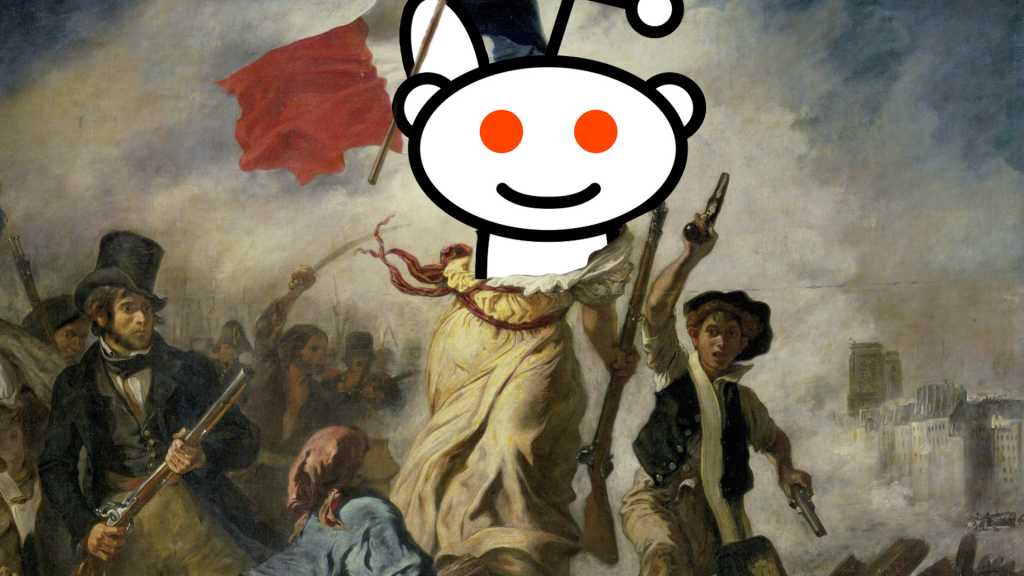


Back in the era of Destiny's Child, a song like 'Independent Women' – a single story of women’s financial independence – was enough to make Beyoncé Knowles a feminist icon.
Fast forward to 2023, and Beyoncé’s Renaissance turned its focus to the Black Queer community. Working with gender fluid New Orleans drag artist Big Freedia, Black transgender DJ and producer Honey Dijon, and more, Queen Bey sought to highlight the often forgotten impact the Black Queer community has had on dance music and club culture.
Back in the 00s, some producer credits and fleeting cameos might have been sufficient. But to do justice to today’s standards of representation, Renaissance had to tell a story that was more specific, and more complex. Unlike ‘Independent Women’, there’s no singular, neat soundbite to this community’s story: the album blends together many messy, even contrasting visions of the Black Queer experience, without claiming to tidily ‘represent’ the wider LGBTQ+ community.
There’s no question that a mediascape that platforms diverse voices is crucial – and in many places, still radical. But in contexts where diverse voices have been normalised, people are paring back their faith in the power of representation alone.
Its limits ring true across pop culture and corporate culture alike. Lizzo brings body positive narratives to the big stage, but is accused of fat-shaming behind the scenes. Record-breaking audiences are watching the Women’s World Cup, but female footballers still aren’t treated with the respect of their male counterparts. Budweiser uses its brand heft to normalise all gender identities, yet trans activist Dylan Mulvaney has to brace against a wave of trolls (without the beer brand’s help, we might add).
With this tempered enthusiasm for representation, people – whether minorities, disempowered groups, or just users writ large – are taking a new approach to identity-building and self-expression. The preference is shifting from active representation to passive, as people seek to explore their identities without proudly putting them on display.
Communities are rewriting the rules of engagement with brands, seeking storytelling and partnerships that complicate representation, rather than simplify it. Brands, recognizing the wealth of originality within these communities, are increasingly making space for these messier stories to come through.

cannot breathe from laughing bc the bing AI is literally fully incapable of making white NBA players for some reason. here are prompts for "lebron james and nikola jokic", "steph curry and luka doncic" and "magic johnson and larry bird" pic.twitter.com/TaLiZWDRfn
— largest rodent (@capybaroness) October 4, 2023
Internet icon Aliyah Bah made waves because her aesthetic, aliyahcore, is a mashup of racialised and subcultural identities that aren’t typically lumped together – making it a complicating of Black and ‘alt’ identities. It leans into a wider trend of r #altpoc and #blackalt movements on TikTok that reframe white-dominated music genres, from punk to nu-metal, to make space for more complex identities, from POCs to female, trans, and disabled fans.
On social, jokey micro-trends that explore different archetypes of womanhood are everywhere, from ‘tomato girl summer’ to ‘coastal cowgirl’. Users have reclaimed the term ‘girl’ – a word once used to patronise adult women – as a tongue-in-cheek way to find community amongst women who share similar mindsets, vibes, aesthetics and auras. Girls of the internet are “eating my girl dinner, taking my hot girl walk, listening to my sad girl music, reading my feral girl books, going out dancing with my girlianas, getting bevvies with my girlipops”, and even explaining how men from Pedro Pascal to Succession’s Kendall Roy embody ’babygirl’ energy.
eating my girl dinner, taking my hot girl walk, listening to my sad girl music, reading my feral girl books, going out dancing with my girlianas, getting bevvies with my girlipops, every day a slow march towards death (Womanhood)...
— em koop (@em_kupor) July 10, 2023
Some of the most celebrated, appreciated, and fast-growing places on the social internet are spaces that enable people to collectively explore their identities, rather than represent them. On Reddit, people are using spaces like r/AskBlackGirls, r/AskTransgender, r/AskGayBrosOver30 to help people gain a more nuanced understanding of marginalised groups’ lived reality – but through exploratory, anonymous storytelling, rather than loud ‘representation’

@syds_garage honestly call me a painter now too #TikTokCars #bronco ♬ Fast - Sueco the Child
Move beyond intentional representation. In tackling gender stereotypes, a brand might choose to spotlight women-led stories and dismantle female stereotypes. But Ford and Dickies’ work with @syds_garage takes a more indirect approach to representation, in that it starts with the person, not the identifier (gender). While known for more glamorous roles, Sydney Sweeney was hand-picked by Ford and Dickies because of her own well-documented obsession with car garages – not so she could "represent" women in the automotive world. Indeed, there are no mentions of womanhood or femininity in the piece.
Challenge ingrained narratives through innovation. Vice World created the "The unfiltered history tour" AR filter for The British Museum. The tech enabled users to understand the real terms impact of colonialism when it came to the historical artefacts on display in the museum. It was a clever way to showcase representation in a way you didn’t expect, highlighting the hidden stories, complicating the representation of art’s identity, challenging our understanding of the identity behind those artefacts as well as educating the audience.
Show how you’re helping people explore – not just represent – identity. Apple’s ‘The Greatest’ ad shows how the brand is actually creating opportunities for differently abled people to explore their identity, rather simply aiming to portray those identities with its ad. The spot isn’t about ‘representation’ of people with disabilities – instead, it alludes to the way the brand’s tech creates space for differently abled people to experience and explore broader aspects of their identity, from motherhood to makeup routines.